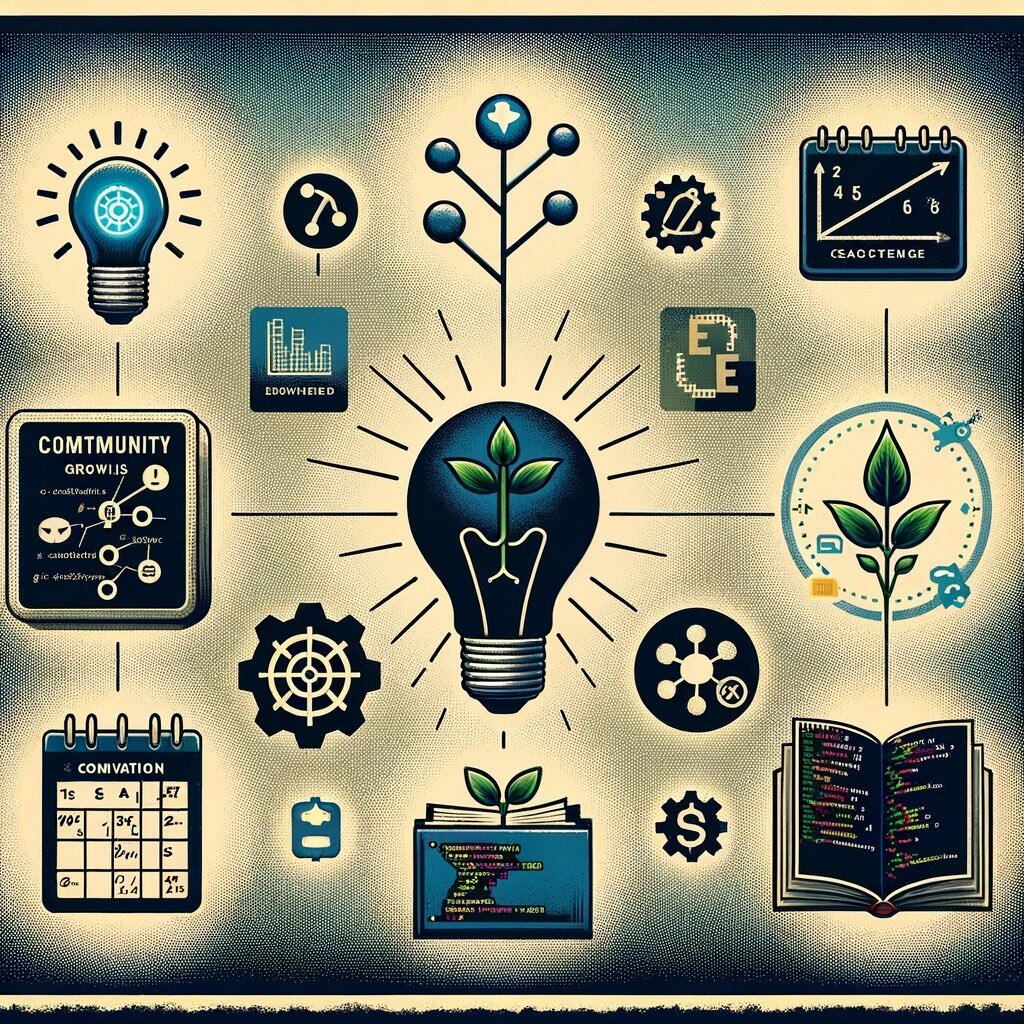As educators, we often reach a comfort zone where the motivation to learn new skills, like coding, tapers off. Sometimes, we set ourselves into a rut of grading and covering only what we have always taught. This may become more of an issue now, with Artificial Intelligence(AI) helping to write more code and do most of the "easy work" for us. However, keeping our coding skills sharp and staying abreast of new developments in technology is crucial for our professional growth and inspiring our students. In this post, I will share a personal perspective on how we can maintain and even rejuvenate our motivation for coding, making the journey rewarding and enjoyable.
1. Setting Clear Goals
Setting clear objectives is the first step to staying motivated. Ask yourself: What do I want to achieve with my coding skills? It might be building a specific project, mastering a new programming language, or contributing to open-source projects. Having a defined target gives you direction and a purpose to work towards. If adding twists and interesting activities for students is a motivator, aim to adapt your goals according to the school year. If the goal is too big, break it up and make smaller tasks that you can complete.
2. Embracing AI as a Collaborative Tool
Instead of seeing AI as a rival, view it as a collaborator. AI can take over repetitive tasks, offer coding suggestions, and assist in debugging. This allows more time for creative and complex coding tasks, making your work more engaging. Consider using a coding assistant instead of ChatGPT, and investigate ways AI can also be used in class to motivate your students.
3. Committing to Continuous Learning
The technology is ever-evolving. Commit to learning new languages, frameworks, and tools. This keeps your skills current and brings a sense of achievement and growth. Try to integrate new coding concepts into your teaching. This not only benefits your students but also reinforces your own learning. Look into using Python with hardware, such as Circuit Playground, Lego Spike Prime, or Drones.

4. Joining Communities
Participate in online coding forums or local meetups. Sharing experiences, working on joint projects, and networking with peers is incredibly stimulating and keep you connected with the coding world. Follow other Pythonistas that work on Python libraries that interest you. Follow tech blogs, podcasts, and news to stay informed about the latest developments in computer science and coding. This can spark interest in learning new technologies or languages.

5. Pursuing Personal Projects
Create small projects for yourself. This hands-on approach can be more engaging, rewarding and are highly motivating. They allow you to apply your skills to something you are passionate about, and the satisfaction of seeing your project come to life is unparalleled. With the help of AI, you can also develop projects that may have been previously out of your reach.
6. Balancing Your Work
Sometimes, you need a break from coding. If you are in a position to take a break from coding, do it. To avoid burnout, balance coding with other hobbies, exercise, and social activities to keep a healthy work-life balance. Pick up a fiction book and switch coding activities for different interests.
7. Celebrating Small Wins
Regularly look back at how far you've come in your coding journey. Every small achievement in your coding journey is a victory. Whether fixing a complex bug or grasping a new concept, take time to acknowledge and celebrate these milestones. On the Teaching Python podcast, we take time each episode to celebrate our wins and to help keep us motivated in our daily work.
8. Staying Curious
Approach coding with a curious mind. Experiment, tinker, and explore new ideas. This approach keeps the learning process exciting and engaging. Step out of your comfort zone and try to learn something completely new or more advanced. Dig deep into a Python library that you already know, explore it, and challenge yourself to do something new with that library. For example, Stephen Gruppetta does an amazing job at pushing the limits in Python Turtle.

9. Teaching Others
There is a reason why teachers teach. It is a rewarding experience that can boost your confidence and motivation. But sharing your knowledge with others helps them and reinforces your understanding. Learn something new, teach it to a colleague or student, or post it online. Remind yourself of the positive impact you have on your students. Your continuous learning can inspire and benefit them greatly.
10. Integrating AI into Learning
Use AI to generate code for something unique or a project you want to complete. Learn each line of the code and challenge yourself to improve the code and enhance your debugging and coding skills. Try to understand and improve AI-generated code or use AI to generate other project ideas.
Remember, it's normal for motivation to fluctuate. The key is to stay adaptable and find what reignites your passion for coding. Whether it's a personal project, community involvement, or the thrill of learning something new, there's always something to generate that spark. Embrace the moments, try some strategies, and continue to grow as educators and lifelong learners in coding and AI.
